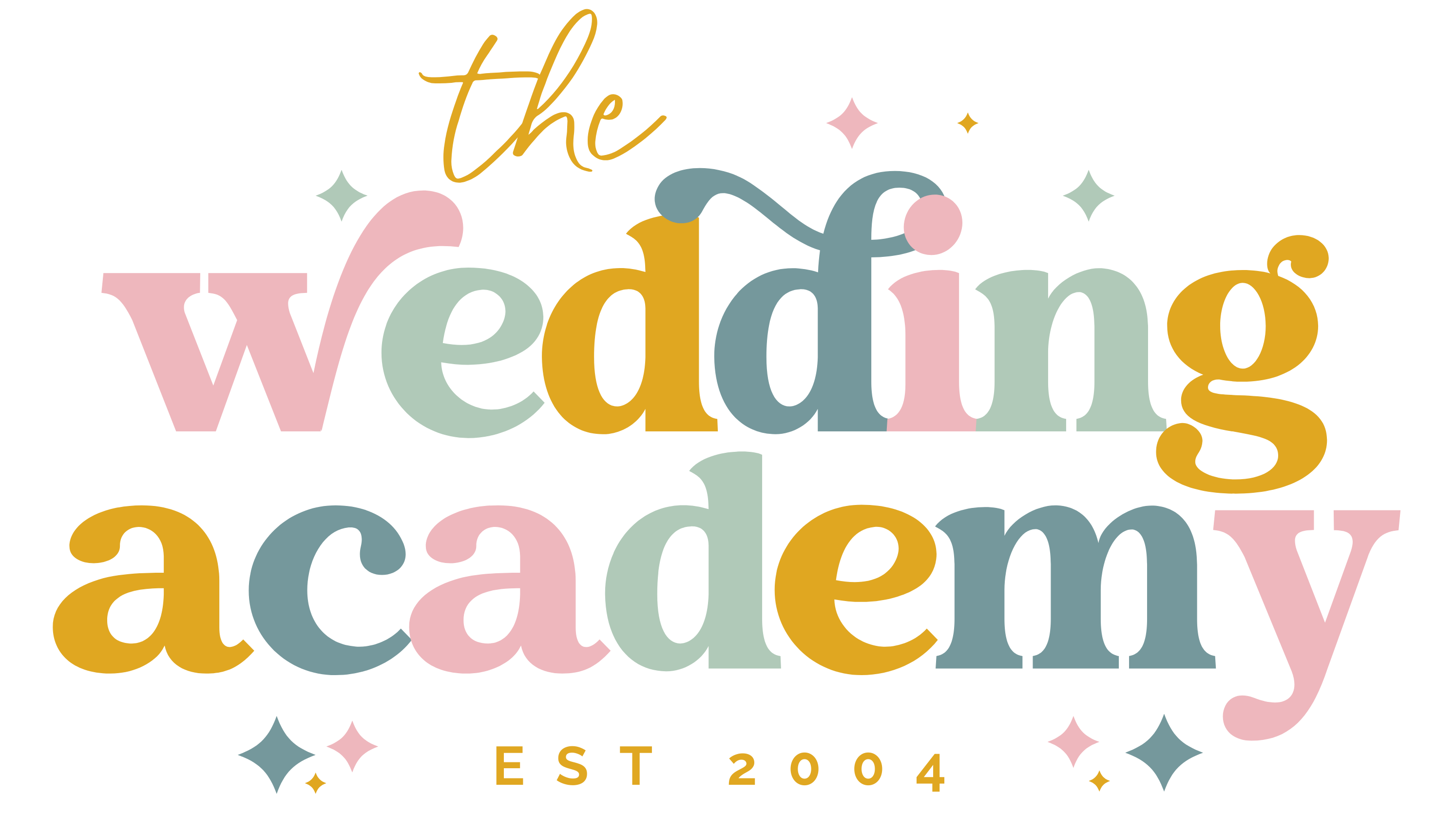What does a Wedding Planner actually do? So you think you want to be a wedding planner but you’re not quite sure how to get started. Well you’re in luck, in this post we’ll be revealing exactly what it takes to become a wedding planner and how you can start your business in the wedding industry.
The Role of a Wedding Planner
Let’s start with the basics; what does a wedding planner actually do? This may seem obvious but if you’re considering starting a business planning weddings this is where you need to start.
You may think it’s all venue visits and rushing around behind the scenes with a clipboard but there are quite a few aspects of the job you may not yet know about.
For example, a wedding planner’s little black book is invaluable.
One of the key things your clients will expect is quality supplier recommendations. It’s not just about managing the logistics so that the day goes off without a hitch, it’s about connecting couples with the right suppliers who will bring their vision to life.
In fact, managing people full stop is a huge part of a planner’s role and that extends from suppliers and venue staff to the wedding party itself.
Weddings can throw up all sorts of family dramas and it is the wedding planners job to manage and smooth these over to ensure everything stays on track. You might also be required to attend meetings and make decisions on the client’s behalf.
And if you want to be a wedding planner who offers design and styling services then you will be responsible for all the creative elements; from colour and theme recommendations to decor selections and on the day set up.
If you’re liking the sound of all this then keep reading as wedding planning might just be the perfect career for you!
Do you have what it takes?
We’ve summarised the role of a wedding planner so now let’s talk about what makes a successful planner?
We’re strong believers that knowledge, expert training and well-practiced skills are what makes the best planners.
However, there are some key personality traits that are common amongst planners:
- Highly organised
- Calm whatever the situation
- Sensitive and intuitive to people’s needs
- Strong communicator
- Team player, if not a strong team leader
Does this sound like you? Perfect, you’re already halfway there!
What Skills do you need?
When a couple employs you as a wedding planner they’re looking for someone to take care of all the planning aspects that they don’t want to do or they aren’t confident doing themselves.
The key skills you need to bring to the table in order to get hired may include:
- Planning and Conceptualising
- Budgeting
- Logistics Management
- Sourcing and Negotiating
- Problem Solving
- Networking
- People Management
You’ll also need to have an eye for details, great decor knowledge and be meticulous in checking both your work and that of others.
Why you need to get some training
You may have been a guest at many weddings, you may have planned your own perfect day and you may have helped plan for friends and family. If you have that’s great, you already know some of the fundamentals and you have discovered a passion.
However, planning the wedding of paying clients who have employed you is very different.
For a start the expectations are much higher. Not everyone employs a wedding planner and those that do will be expecting a skilled and knowledgeable professional.
Our Advanced Certificate in Wedding Planning, Styling and Business will ensure you have the skills and confidence to take on your first clients.
Not only that, obtaining a certification with the Wedding Academy will help reassure prospective clients of your professionalism and capabilities until you have built up the reputation and testimonials of a more experienced planner.
When it comes to getting clients to sign on the dotted line, an industry recognised certification can be the reason clients may employ you over another planner.
Here at the Academy we have been training wedding planners around the world for over 12 years. Our 4000+ graduates are a testament to our passion for providing aspiring wedding planners with the best training possible to succeed in the industry.
























